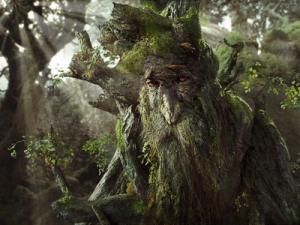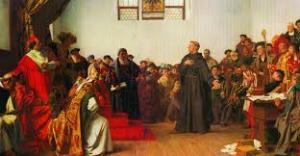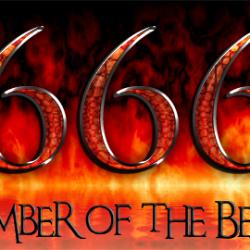There are two kinds of living things. They are distinguished by the strategies they have developed in response to perceived threat and danger. One kind responds to danger by running away from it, developing strategies and evolving tools to sidestep threats in more and more complex and sophisticated ways. We call this kind of living thing Animals.
The other kind’s strategy is to hunker down, grow roots along with protective armor, and face danger by refusing to be moved. We call this kind of living thing Plants. We human beings tend to consider our animal capacities to choose between various strategies as one of our most important and wonderful abilities, going so far as defining “freedom” in terms of how many options we have to choose from. But the older I get, the more I think that the nature of true freedom is a lot more like the strategy of plants.
In The Cruelest Month, the third of Louise Penney’s outstanding Inspector Gamache series, the good Inspector has a conversation with Gilles Sandon, one of more than a half-dozen suspects in the most recent murder in Three Pines, Quebec. Sandon is a former lumberjack, a hulking brute of a guy with an unexpected sensitive side.
Gilles tells Gamache of a day a number of years ago when he walked with his tree-cutting colleagues into the woods for a day of work and heard a whimpering that sounded like a baby animal. As the whimpering became louder and turned into a cry, then a scream, Gilles realized that this wasn’t an animal sound at all. Furthermore, none of his companions could hear it.
Something had changed overnight. I’d changed. I could hear the trees. I think I could always hear their happiness. I think that’s why I felt so happy myself in the forest. But now I could hear their terror too . . . Mostly trees are quiet. Just want to be left alone. Funny how I learned about freedom from creatures that are rooted in place.
Gilles’ life was changed, beginning with his understandably being fired from his lumberjacking job (if a lumberjack won’t cut trees, what’s the point?). Over time he became a woodworking artist, specializing in making chairs out of dead trees that he carefully selects after they have fallen; as Gamache says, Gilles makes his living giving dead trees new life.
“Funny how I learned about freedom from creatures that are rooted in place.” In Tolkien’s The Two Towers, the middle book in his classic trilogy The Lord of the Rings, the hobbits Merry and Pippin learn a similar lesson from Treebeard and the Ents, the oldest creatures in Middle Earth who are, for all intents and purposes, talking trees who have the ability to walk, think, and talk—very, VERY slowly and deliberately. Merry and Pippin, running for their lives from a band of murderous orcs from whom they have just escaped, find themselves in middle of Fangorn Forest where the Ents live.
After hearing about the forces gathering for a classic battle between good and evil on the borders of their forest, Treebeard calls for an “Entmoot,” a council of Ents to decide what, if anything, they should do about these disturbing events. It takes days for the Ents to gather, and many more days for the debate to take place at a one-sentence-per-hour pace. Merry and Pippin are driven close to madness with impatience over the snail-like deliberateness of the Ents—but when they finally choose to take a side in the battle, their participation sways the conflict, at least for a while, in the direction of the good guys.
In our American culture, freedom is often thought of as the ability to do whatever I want, whenever I want to do it, free from the interference of anyone other than me. Any perceived limitation on what I want to do, even if clearly in my own interest and that of others, is a violation of my “freedom.” But philosophers have argued for centuries that this uninhibited throwing around of my deliberative weight is anything but true freedom.
Aristotle conceived of the life of freedom and moral excellence as a life constructed out of the virtues, good habits that, when cultivated, incline a person to do the right thing as a matter of developed character rather than conscious choice. More than two millennia later, Iris Murdoch provides a contemporary spin on Aristotle’s insight in The Sovereignty of Good by suggesting that it is in the small choices concerning what we pay attention to and adopt as centrally important that true freedom is to be found.
But if we consider what the work of attention is like, how continuously it goes on, and how imperceptibly it builds up structures of value round about us, we shall not be surprised that at crucial moments of choice most of the business of choosing is already over. This does not imply that we are not free, certainly not. But it implies that the exercise of our freedom is a small piecemeal business which goes on all the time and not a grandiose leaping about unimpeded at important moments.
True freedom, under this description, is acting in attunement with one’s character and conscience—items that are constructed slowly, deliberately, and in accord with one’s best nature. A lot like a tree, in other words.
A human being can never entirely trade its animal survival strategy for the rootedness of a plant. But we can, as Gilles, Merry, and Pippin did, learn a lot about freedom and how to be in the world from a tree.  I used to wonder what Martin Luther meant when, at the Diet of Worms, he concluded his refusal to recant his heretical writings by saying “Here I stand. I can do no other.” Of course he could have done otherwise! I would complain. No one is forcing him not to recant.
I used to wonder what Martin Luther meant when, at the Diet of Worms, he concluded his refusal to recant his heretical writings by saying “Here I stand. I can do no other.” Of course he could have done otherwise! I would complain. No one is forcing him not to recant.
But Luther’s point was that at this moment in his life, recanting his writings would be the same as ceasing to be Martin Luther. He can do no other because his character has rooted him in place. As Murdoch suggests, if one has paid attention to the incremental tiny choices that shape one’s character and life over time, what to do at “crucial moments of choice” will not only be clear—it will be unavoidable. Be like a tree.

















